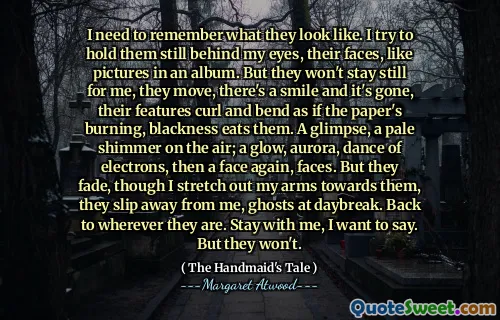Perhaps he was merely being friendly. Perhaps he saw the look on my face and mistook it for something else. Really what I wanted was the cigarette.
In "The Handmaid's Tale" by Margaret Atwood, the protagonist experiences a moment of ambiguity in social interactions. She reflects on a man's friendliness, questioning whether his intentions were genuinely kind or misinterpreted due to her own expression. This uncertainty highlights the complexities of human relationships within the oppressive environment she inhabits. The narrator is caught between her desires and the realities of her situation. Her yearning for a simple pleasure, like a cigarette, reveals deeper emotional struggles and the coping mechanisms she employs. Such moments illustrate the tension between personal needs and societal constraints in the dystopian world Atwood has created.
In "The Handmaid's Tale" by Margaret Atwood, the protagonist experiences a moment of ambiguity in social interactions. She reflects on a man's friendliness, questioning whether his intentions were genuinely kind or misinterpreted due to her own expression. This uncertainty highlights the complexities of human relationships within the oppressive environment she inhabits.
The narrator is caught between her desires and the realities of her situation. Her yearning for a simple pleasure, like a cigarette, reveals deeper emotional struggles and the coping mechanisms she employs. Such moments illustrate the tension between personal needs and societal constraints in the dystopian world Atwood has created.






